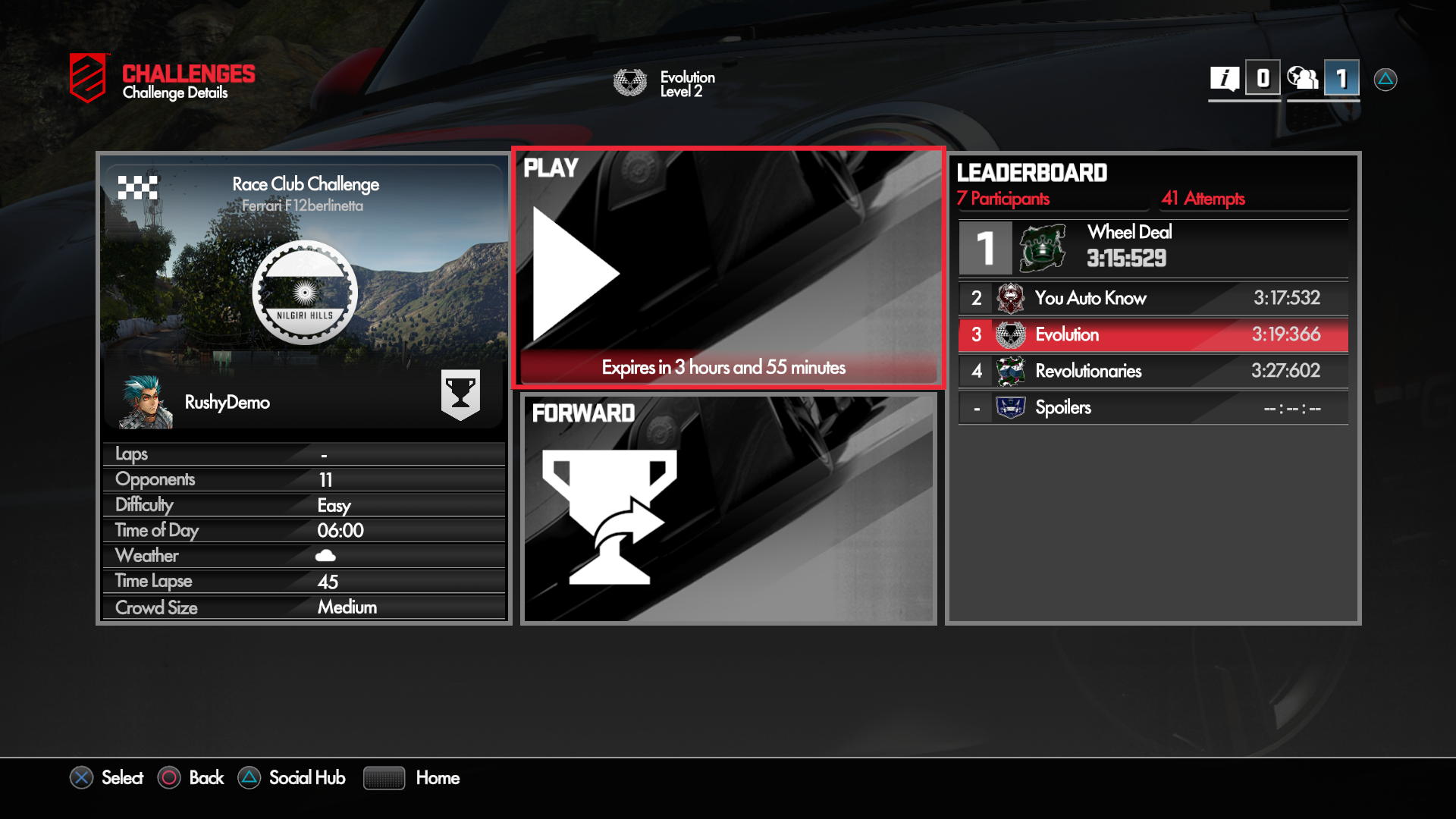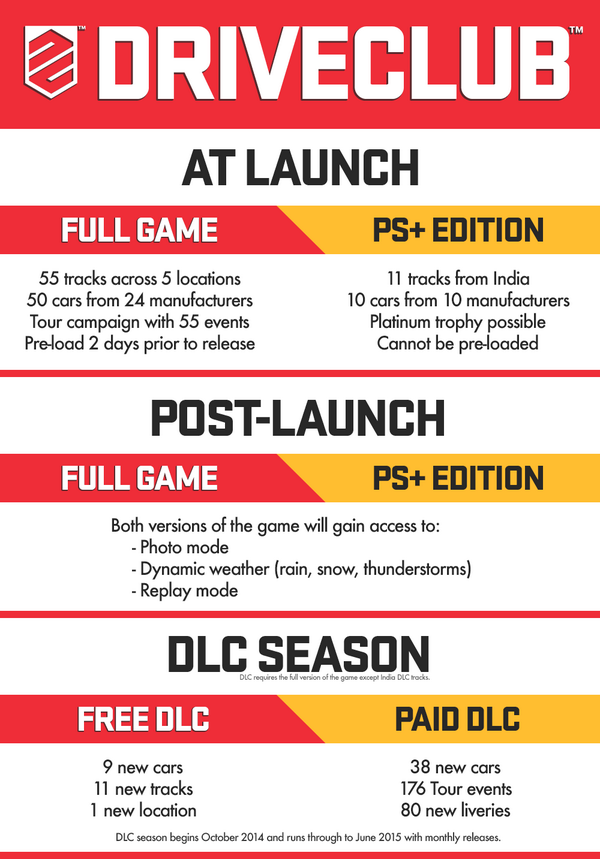Over the last week, I have been closely following DriveClub’s launch woes. Predictably, social media went into a frenzy as the developer scrambled to respond. As of this writing, Evolution Studios is still struggling to fix the game’s online component a week later, and is considering compensation options for those who purchased the game. Deja vu.
Response from the gaming community seems to be sitting at two entirely different extremes. On one extreme are people who have indulged in throwing the same vitriol at developers that you would see coming from your everyday troll. On the other extreme are gung-ho apologists vehemently defending the botched launch with, quite frankly, borderline frightening arguments that show signs of blind acceptance. Failures happen. The video games industry, like any other industry, is not immune to them. But there is an evident lack of understanding among the gaming community of what a launch failure really is, and evidence of unpreparedness among developers, leading to total mismanagement of the situation and lacklustre responses.
In DriveClub’s case, the culprit is its multiplayer component. The game was delayed for a year with lots of promises, and its social aspect was promoted heavily. As a consequence, a lot of people pre-ordered and purchased the game at launch to “play with their friends,” which didn’t quite turn out the way it was supposed to.
This isn’t the first time a failure of this sort has occurred, and it won’t be the last time. But to justify one launch failure by quoting another from the past, like many fellow gamers seem to be doing, is asinine to say the least. It’s neither a solution to the problem nor a consolation. As a matter of fact, this argument is part of the problem because if an issue keeps occurring, it needs to be addressed. Video games failing to deliver upon launch is becoming a disturbing trend in the industry. I would personally prefer that developers take as much time as they need to finish a game and thoroughly test every single aspect of it before launch. I’m not saying that they don’t already do that, no. But in quite a few of these instances, that actually seems to be the case; awful glitches, bugs that render the game unplayable, servers crashing, and so on.
A Little Bit of Risk Assessment, Anyone!?
Quite a few people have presented arguments that go along the lines of, “oh, it’s just a video game,” and I’m honestly baffled by that non-serious attitude. A standard AAA game is a $60 product designed to entertain players. It should be treated like any other consumer product in that it actually needs to do what it says on the tin. For products that are marketed to millions world over, it makes little sense for developers to not consider having backup in place should things fall through. It makes little sense for them to not prepare themselves for the worst. It makes little sense for them to not have a safety net to fall back on, or have a strategy in place to mitigate unforeseen circumstances. This needs to start happening, especially because a lot of the launch issues developers face aren’t exactly something new.
Management 101
I said it before, I’ll say it again — failures do happen. In a perfect little world, everything would work the way it was intended to, but hey, that doesn’t always happen and it’s fine, really. But what’s not fine is mismanagement. A note to developers and their PR teams: if you did your best and still failed, manage the situation as opposed to diffusing it. There’s no need to grovel at our feet, but acknowledgment and goodwill gestures go a long, long way.
Communication is Key!
I can’t stress on this enough. Gamers don’t know what’s happening behind the scenes so don’t leave your customers in the dark. Update them regularly, inform them of what steps you have taken and/or are about to take. It will make a huge difference.
Gone are the days when video games worked as desired straight out of the box. Things have changed due to technological advancements, leading to day-one patches and post-launch fixes becoming a thing. I fully welcome patches and updates that enhance my gaming experience. Adaptability is not necessarily a bad thing. But if we’re talking about a game that fails to deliver at launch, and it takes developers weeks or even months (in extreme cases) to fix them, we need to recognize this as a failure as opposed to something that “just happens.” There’s a vast difference between post-launch enhancements and games that only partially function when sold.
That said, gamers also need to realize that developers don’t consciously intend to fail. They don’t derive any benefit out of disappointing consumers, and believe it or not, they do end up facing some heavy consequences, often in terms of layoffs, financial cut-backs, and loss of customers. At the end of the day, both parties suffer. I’m neither an expert on these issues nor do I claim that the aforementioned strategies will necessarily work in each case. But as someone who is passionate about gaming, I have done my part by at least making an attempt, even if only a simplistic one, at proposing a way forward. It’s impossible to please everyone, but not impossible to do right by your genuine customers.
Note: The view expressed in this article is solely that of the author’s and does not represent that of PlayStation LifeStyle and its entire staff.
DriveClub - Everything We Know so Far
-
DriveClub Cars List and Available Cars for the PlayStation Plus Version

Same with other racers, DriveClub will have a ton of cars at release, with more promised via DLC.
With DriveClub being available for "free" for PlayStation Plus members, then you might be curious as to what the non-paid version's car list will be.
PlayStation Plus Edition Car List
Hot-Hatches
Mini John Cooper Works GP
Volkswagen Golf GTISports
Bentley Continental GT Speed
Mercedes-Benz A45 AMGPerformance
BMW M3 GTS
Maserati Gran Turismo MC StradaleSuper
Audi R8 V10 Plus
BAC MonoHyper
Pagani Zonda R
RUF CTR3 ClubsportYou can check out the full car list here.
-
DriveClub DLC Schedule to Have Free and Paid Content

Same as almost every game these days, DriveClub will have a load of DLC fans can look forward to post-launch.
You can read about some of the planned content right here.
-
DriveClub Install Size Revealed

DriveClub's download and install size is at 17GB. If you're going the PS+ route, however, you won't be able to pre-load the game.
-
Evolution Doesn't Want Players to use DriveClub's Micro-Transactions

Yes, DriveClub will have micro-transactions, which might turn some people off. But in an odd twist, Game Director Paul Rustchynsky doesn't want people to use it.
-
DriveClub Won't Take Up a Spot for October's PS+ Free Games

In a rather awesome move by Sony, it's been confirmed that DriveClub will not take up a slot for October's lineup of free PS+ games.
So, clear your hard drive a bit, since it's going to be a good October.
-
DriveClub Only Requires 3.5GB for You to Start Playing

Like most PS4 games, DriveClub won't require that you download the entire thing before being able to race.
Digital buyers will only have to download 3.5GB before they can play and have the rest of the data download in the background. Retail buyers will only have to wait 60-seconds before being able to play (that's the install time).
-
DriveClub PS+ Edition Won't Get New Cars, But Will Get New Features

No doubt about it, the PS+ edition of DriveClub won't be the same as the retail version. One of the big differences will be that at post-launch, the free version won't get new cars but new features are planned.
At least you'll be getting something new, right?
-
DriveClub Will Have Dynamic Weather

DriveClub will have dynamic weather effects and you can thank the delay for its inclusion. If you haven't seen it, go check out this footage to see what it looks like in-game.
-
Evolution to Do Its Best to Eliminate Rage-Quitting

One of the most annoying things when playing online against real people is some rage-quit when they lose. Evolution hopes to mitigate that with the help of the racer's Challenges.
-
Tracks Will Take Less Than 15 Seconds to Load

Don't expect any long loading times before racing! Read up on other facts like that here.
-
Complete Trophy List Revealed, PS+ Edition Has a Plat!

Linked here is the complete set of Trophies one can earn in DriveClub.
What's awesome about Trophies in the game is, the PS+ edition will have a Platinum! Oh, yes!
-
DriveClub Will be at 30fps

While DriveClub will only be at 30fps, Evolution says it will be "fluid and "responsive."
However, that will be locked in at 30fps and won't have frame rate drops.
Regardless of what you think of it, Evolution says it made the "right choice."
-
There Will be Female Racers!

In what should be the norm in racing games, Evolution has confirmed that female drivers will be in DriveClub!
-
Micro-Transactions Will Allow Players to Unlock Cars

Even with that glaring headline, Evolution Studios say micro-transactions can't be abused, and how it won't be possible to use it to get more "FAME," DriveClub's form of currency.
-
DriveClub Will Have Wheel Support

Evolution Studios has confirmed that DriveClub will have wheel support. For now, the compatible wheels for the game will be:
- Thrustmaster T80
- Thrustmaster T300RS
- Thurstmaster T500 (does not support PS4 Share functionality)
The studio states that they will add more wheel support provided it's compatible with the PS4.
-
DriveClub Infographic











